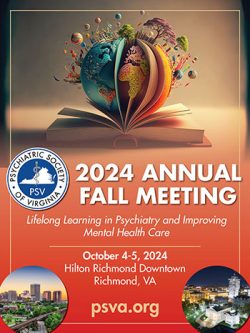By Silvana Mazzella
Interim Lead Executive Officer
Prevention Point Philadelphia
The lecture had five key learning objectives:
- An increased understanding of the current drug supply
- An increased understanding of the impact of the current drug supply on people who use substances
- An increased understanding of the impact of the changing drug supply on opioid dependence, withdrawal, induction, and stabilization on MOUD, as well as mental health treatment
- An increased understanding of harm reduction
- An increased understanding of the impact of harm reduction focused interventions to address the impact of the changing drug supply and improve initiation of and retention in MOUD and mental health treatment
The lecture also explained the concept of harm reduction and discussed some of the basic tenets of harm reduction, including the NO WRONG DOOR OR OPEN DOOR APPROACH, a why use harm reduction outlining the reasons medical and behavioral health clinicians might incorporate harm reduction in mental health assessment, substance use treatment and ASAM assessment, as well as in primary medical care and MOUD treatment.
Critical to the incorporation of the harm reduction approach in behavioral health care are the tenets of empathy, flexibility, and identifying welcoming and retaining people into trauma informed care as key goals, further informed by a guiding principle of reducing mortality and re-framing the “most difficult patients” as people at highest risk for overdose, “frequent fliers” as friendly faces who get warm welcome, Non-adherent patients as individuals with dis-ordered dosing, while validating and treating for what people are reporting and not necessarily what providers identify as immediate medical and behavioral health needs for a patient.
In engaging individuals in behavioral health and substance use treatment in particular, it is important to acknowledge that entering treatment, even for the most motivated or desperate individual, is traumatic, and accept that prior traumatic withdrawal experiences affect subsequent treatment attempts, and that a key role for clinicians is to validate, support, and communicate warmth, acceptance, and community in simple ways, while working to coordinate referral to other care and supports.
Finally, we need to acknowledge that the “healthcare system”, and our respective health systems, need a medical approach to address stimulant use, and support individuals with addiction who primarily use stimulants and, even when impacted by fentanyl adulteration on a regular basis, do not see themselves as opioid users, and/or in need of MOUD, while being very at risk for fatal overdose.




